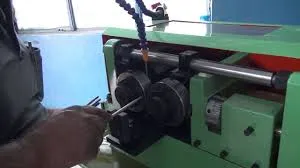
-
 Afrikaans
Afrikaans -
 Albanian
Albanian -
 Amharic
Amharic -
 Arabic
Arabic -
 Armenian
Armenian -
 Azerbaijani
Azerbaijani -
 Basque
Basque -
 Belarusian
Belarusian -
 Bengali
Bengali -
 Bosnian
Bosnian -
 Bulgarian
Bulgarian -
 Catalan
Catalan -
 Cebuano
Cebuano -
 Corsican
Corsican -
 Croatian
Croatian -
 Czech
Czech -
 Danish
Danish -
 Dutch
Dutch -
 English
English -
 Esperanto
Esperanto -
 Estonian
Estonian -
 Finnish
Finnish -
 French
French -
 Frisian
Frisian -
 Galician
Galician -
 Georgian
Georgian -
 German
German -
 Greek
Greek -
 Gujarati
Gujarati -
 Haitian Creole
Haitian Creole -
 hausa
hausa -
 hawaiian
hawaiian -
 Hebrew
Hebrew -
 Hindi
Hindi -
 Miao
Miao -
 Hungarian
Hungarian -
 Icelandic
Icelandic -
 igbo
igbo -
 Indonesian
Indonesian -
 irish
irish -
 Italian
Italian -
 Japanese
Japanese -
 Javanese
Javanese -
 Kannada
Kannada -
 kazakh
kazakh -
 Khmer
Khmer -
 Rwandese
Rwandese -
 Korean
Korean -
 Kurdish
Kurdish -
 Kyrgyz
Kyrgyz -
 Lao
Lao -
 Latin
Latin -
 Latvian
Latvian -
 Lithuanian
Lithuanian -
 Luxembourgish
Luxembourgish -
 Macedonian
Macedonian -
 Malgashi
Malgashi -
 Malay
Malay -
 Malayalam
Malayalam -
 Maltese
Maltese -
 Maori
Maori -
 Marathi
Marathi -
 Mongolian
Mongolian -
 Myanmar
Myanmar -
 Nepali
Nepali -
 Norwegian
Norwegian -
 Norwegian
Norwegian -
 Occitan
Occitan -
 Pashto
Pashto -
 Persian
Persian -
 Polish
Polish -
 Portuguese
Portuguese -
 Punjabi
Punjabi -
 Romanian
Romanian -
 Russian
Russian -
 Samoan
Samoan -
 Scottish Gaelic
Scottish Gaelic -
 Serbian
Serbian -
 Sesotho
Sesotho -
 Shona
Shona -
 Sindhi
Sindhi -
 Sinhala
Sinhala -
 Slovak
Slovak -
 Slovenian
Slovenian -
 Somali
Somali -
 Spanish
Spanish -
 Sundanese
Sundanese -
 Swahili
Swahili -
 Swedish
Swedish -
 Tagalog
Tagalog -
 Tajik
Tajik -
 Tamil
Tamil -
 Tatar
Tatar -
 Telugu
Telugu -
 Thai
Thai -
 Turkish
Turkish -
 Turkmen
Turkmen -
 Ukrainian
Ukrainian -
 Urdu
Urdu -
 Uighur
Uighur -
 Uzbek
Uzbek -
 Vietnamese
Vietnamese -
 Welsh
Welsh -
 Bantu
Bantu -
 Yiddish
Yiddish -
 Yoruba
Yoruba -
 Zulu
Zulu
Pipe Thread Rolling Machine Solutions for Efficient Manufacturing and Precision Engineering
Understanding Pipe Thread Rolling Machine Products
In today's industrial landscape, the demand for precision-engineered components is ever-increasing. Among these components, pipe threads play a crucial role in various applications, from plumbing to oil and gas piping systems. To meet this demand, manufacturers have turned to advanced machinery, specifically pipe thread rolling machines, which offer numerous advantages in terms of efficiency and product quality.
The Technology Behind Pipe Thread Rolling Machines
Pipe thread rolling machines are specialized tools designed to create threaded connections on pipes and tubes. Unlike traditional cutting methods that remove material to generate threads, thread rolling utilizes a cold working process. This involves deforming the material using hardened rollers, which compress the pipe’s surface to form precise threads without the losses associated with material removal. This method not only enhances the strength of the threads but also contributes to improved surface finishes.
In these machines, a set of rollers is positioned around the pipe. As the pipe moves forward, the rollers apply intense pressure, causing the material to flow into the desired thread profile. This process can be automated or semi-automated, enabling high production rates and consistent quality, crucial for meeting large-scale industrial demands.
Benefits of Pipe Thread Rolling
The advantages of using pipe thread rolling machines are manifold. Firstly, they produce stronger threads due to the work-hardening effect created during the rolling process. This is particularly important in high-pressure applications, where the integrity of the thread is paramount. Secondly, rolling results in less material waste compared to cutting methods, making it a more cost-effective solution for manufacturers.
pipe thread rolling machine products

Moreover, thread rolling machines can accommodate various sizes and types of pipes, providing versatility in production. Whether creating threads for small plumbing pipes or large industrial conduits, these machines can be adjusted to meet specific requirements. This flexibility helps manufacturers respond to market changes more swiftly and efficiently.
Additionally, the process of thread rolling typically generates less heat than machining, which can lead to reduced deformation and distortion. This characteristic is vital in maintaining the dimensional accuracy of threads, ensuring they fit seamlessly with corresponding fittings and accessories.
Applications of Pipe Thread Rolling Products
Pipe thread rolling machine products find applications across several industries. In the plumbing sector, they are used to manufacture fittings and connectors that are essential for constructing reliable piping systems. In the oil and gas industry, where high-pressure systems are standard, robust and precisely threaded pipes are critical for safety and functionality.
Moreover, the automotive industry also benefits from these machines for producing components that require threaded connections, such as fuel and hydraulic lines. The growing trend towards automated manufacturing processes has further amplified the use of pipe thread rolling machines, as companies seek to enhance productivity and reduce labor costs.
Conclusion
In conclusion, pipe thread rolling machines represent a vital technology in modern manufacturing, particularly for industries requiring strong, precise threaded connections. The benefits of reduced material waste, enhanced strength, and versatility make these machines an invaluable asset in a competitive marketplace. As industries continue to evolve and demand higher-quality components, it is likely that the role of pipe thread rolling machines will become even more prominent, driving innovations and efficiencies across various sectors. Embracing this technology not only aids manufacturers in meeting current demands but also prepares them for future challenges in the ever-dynamic industrial environment.
